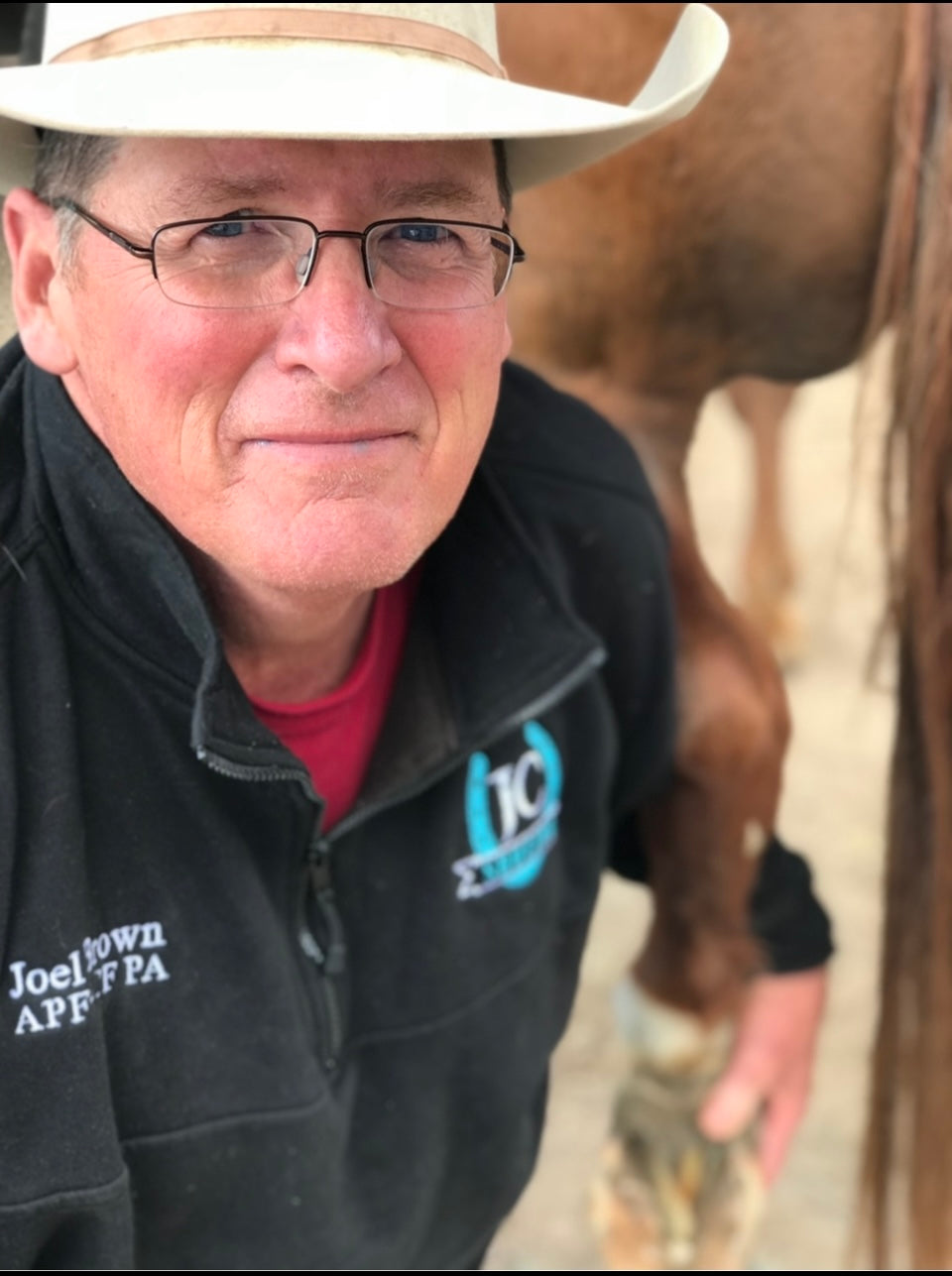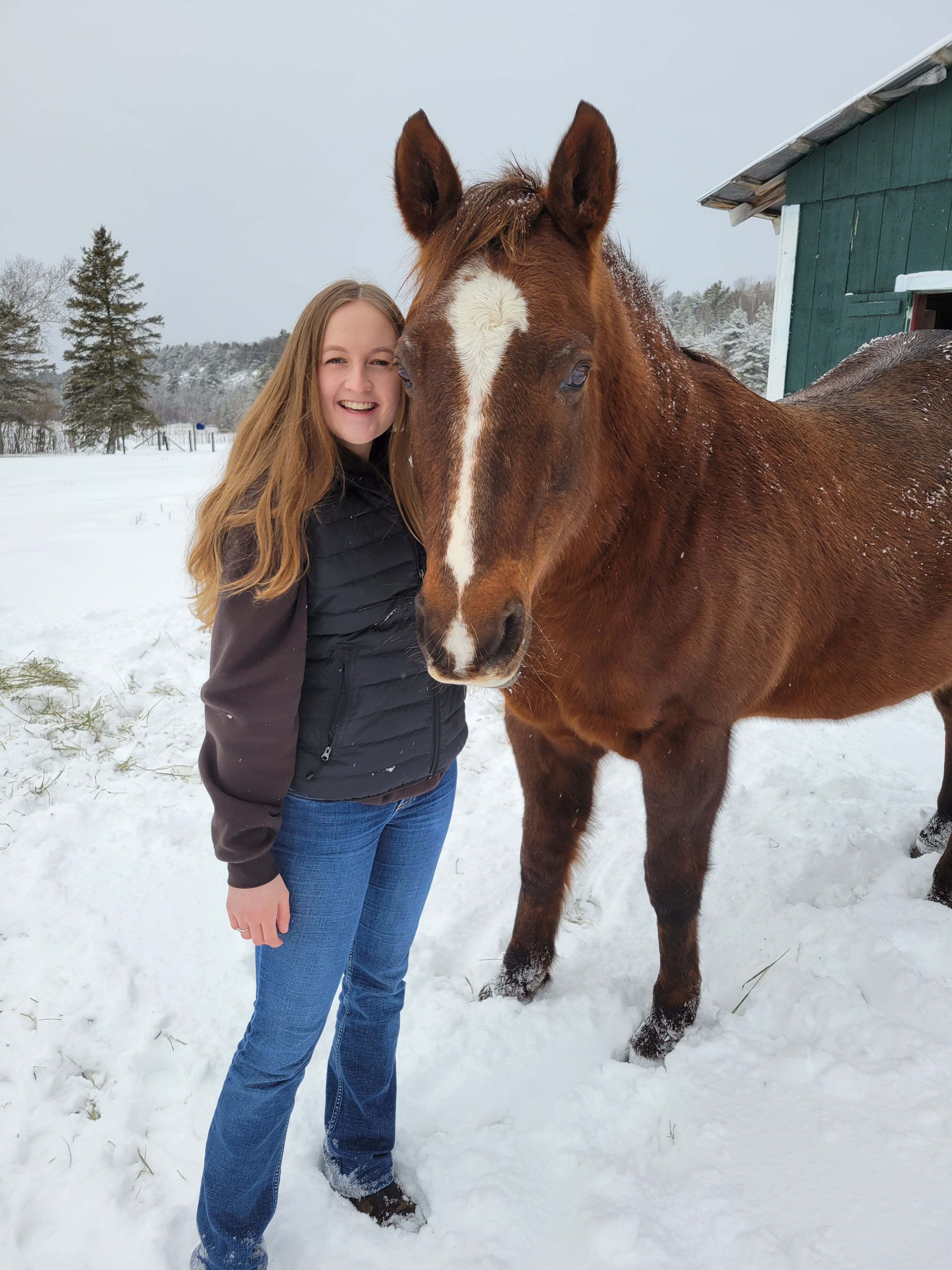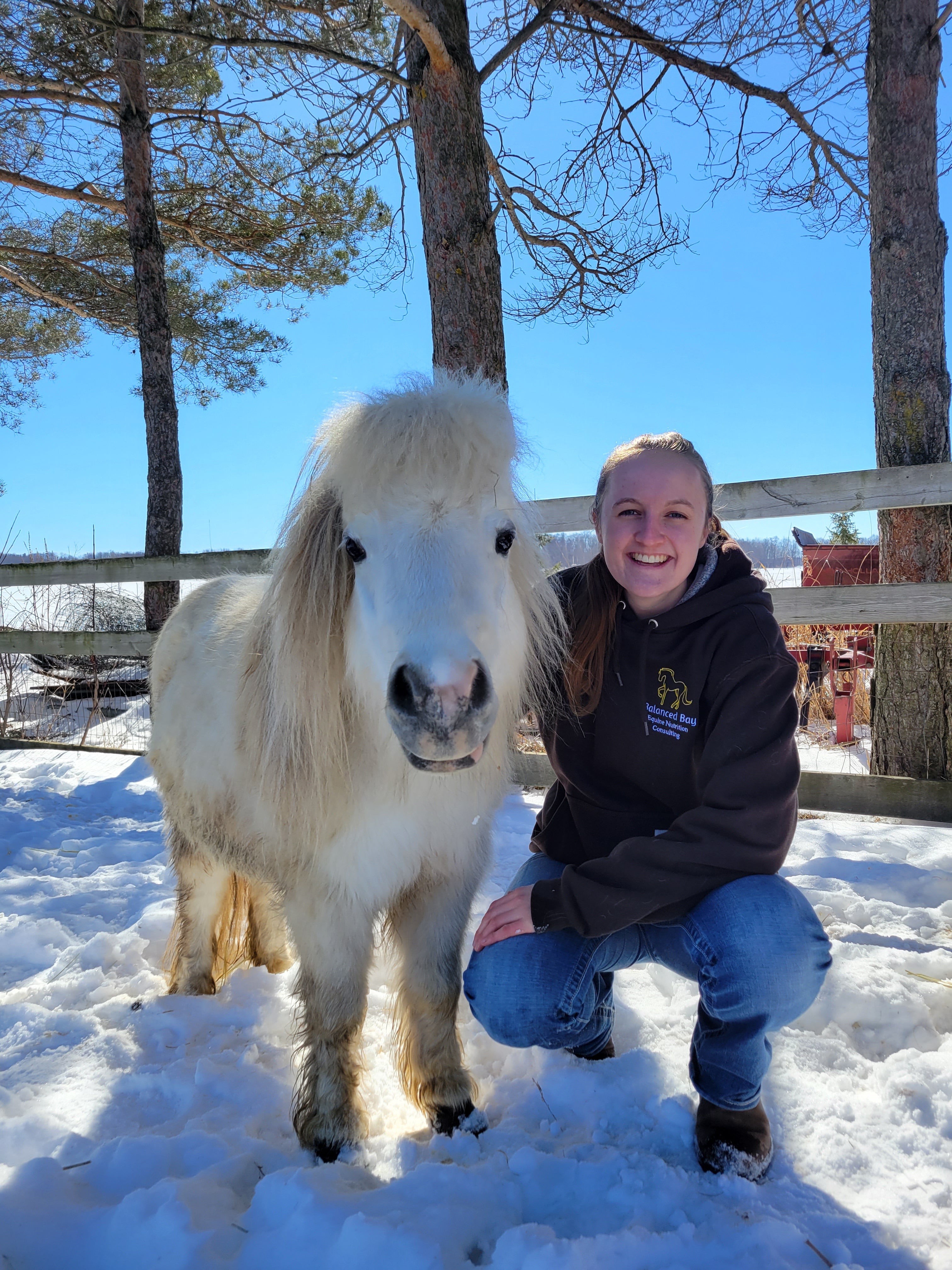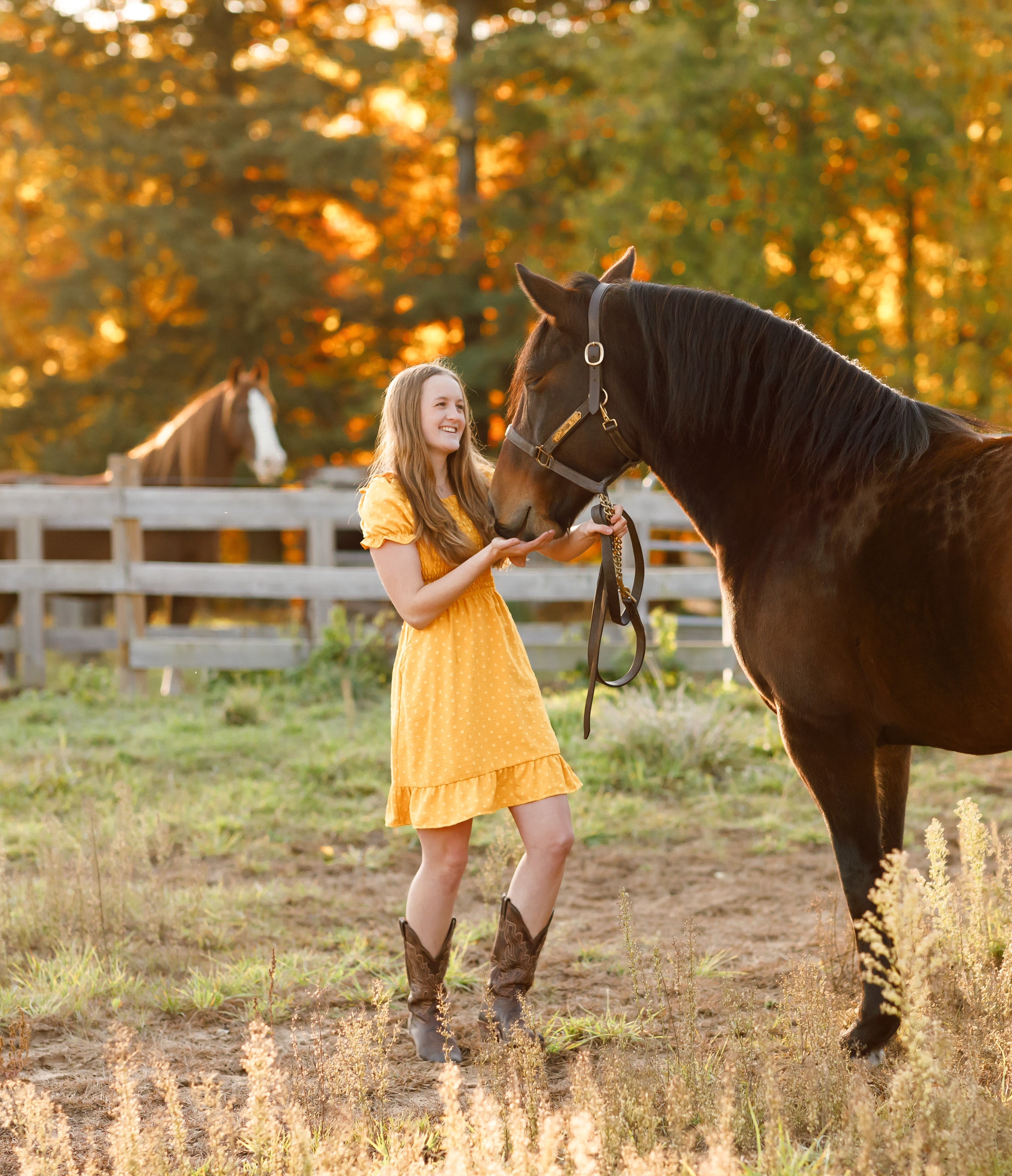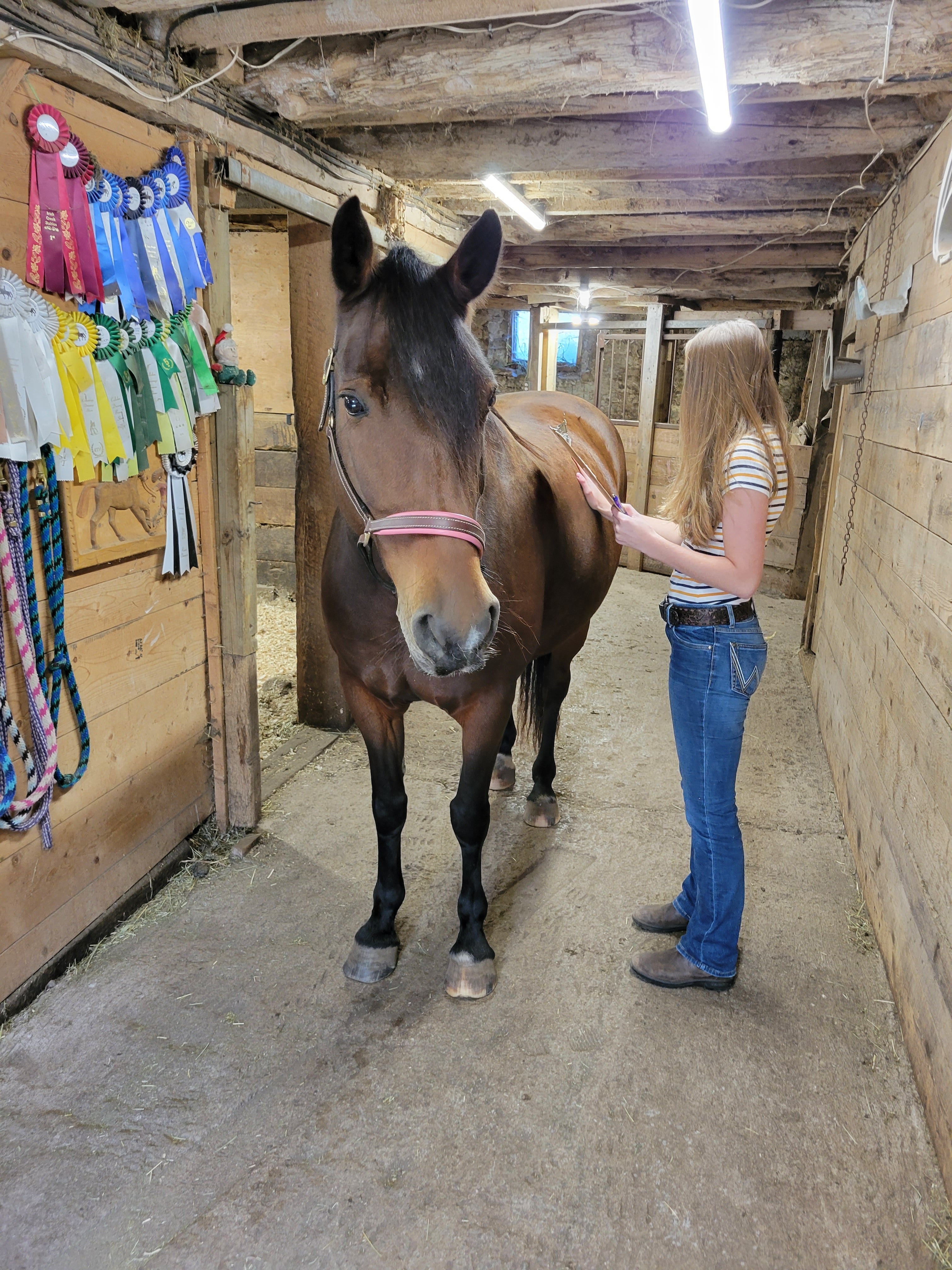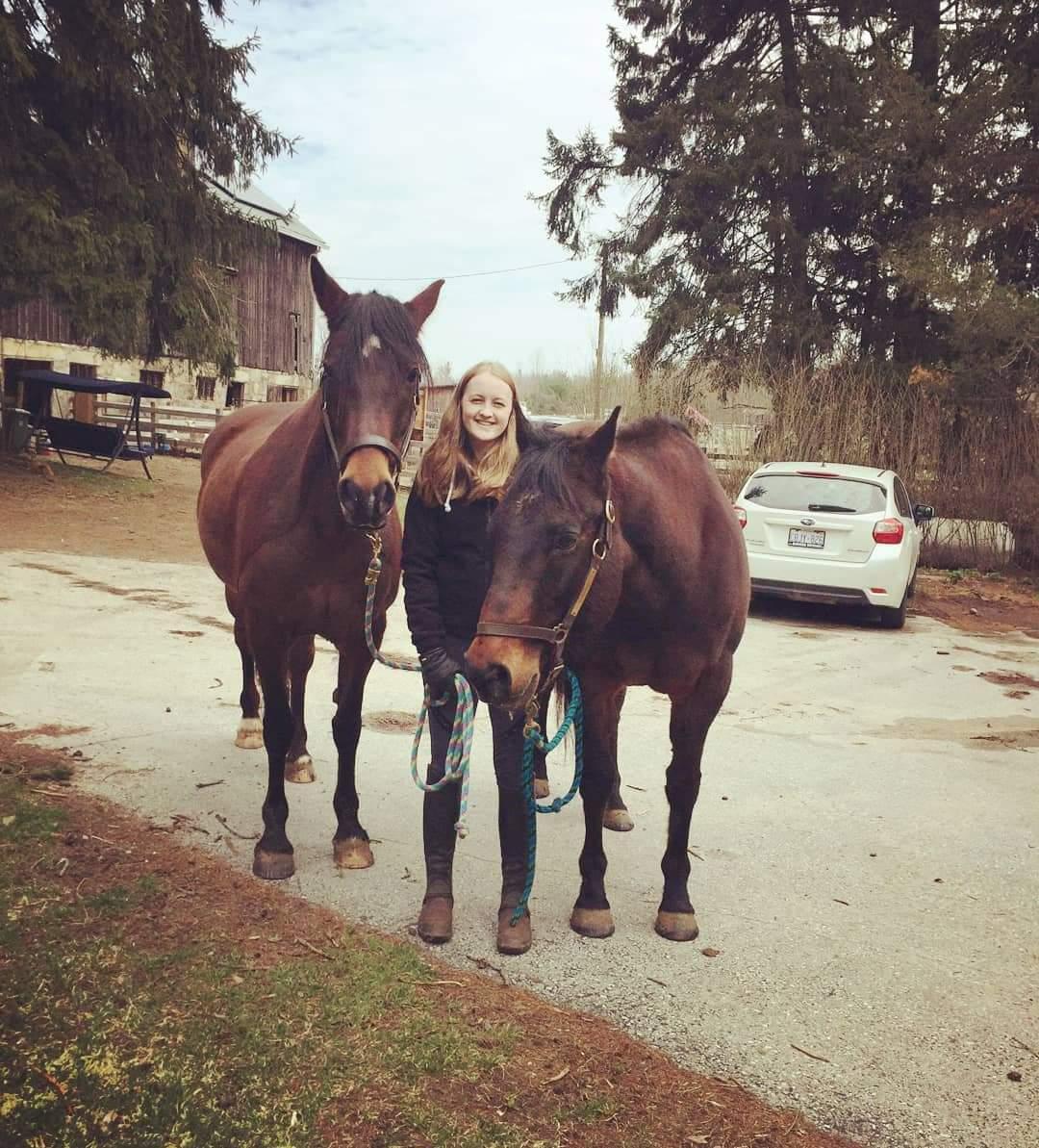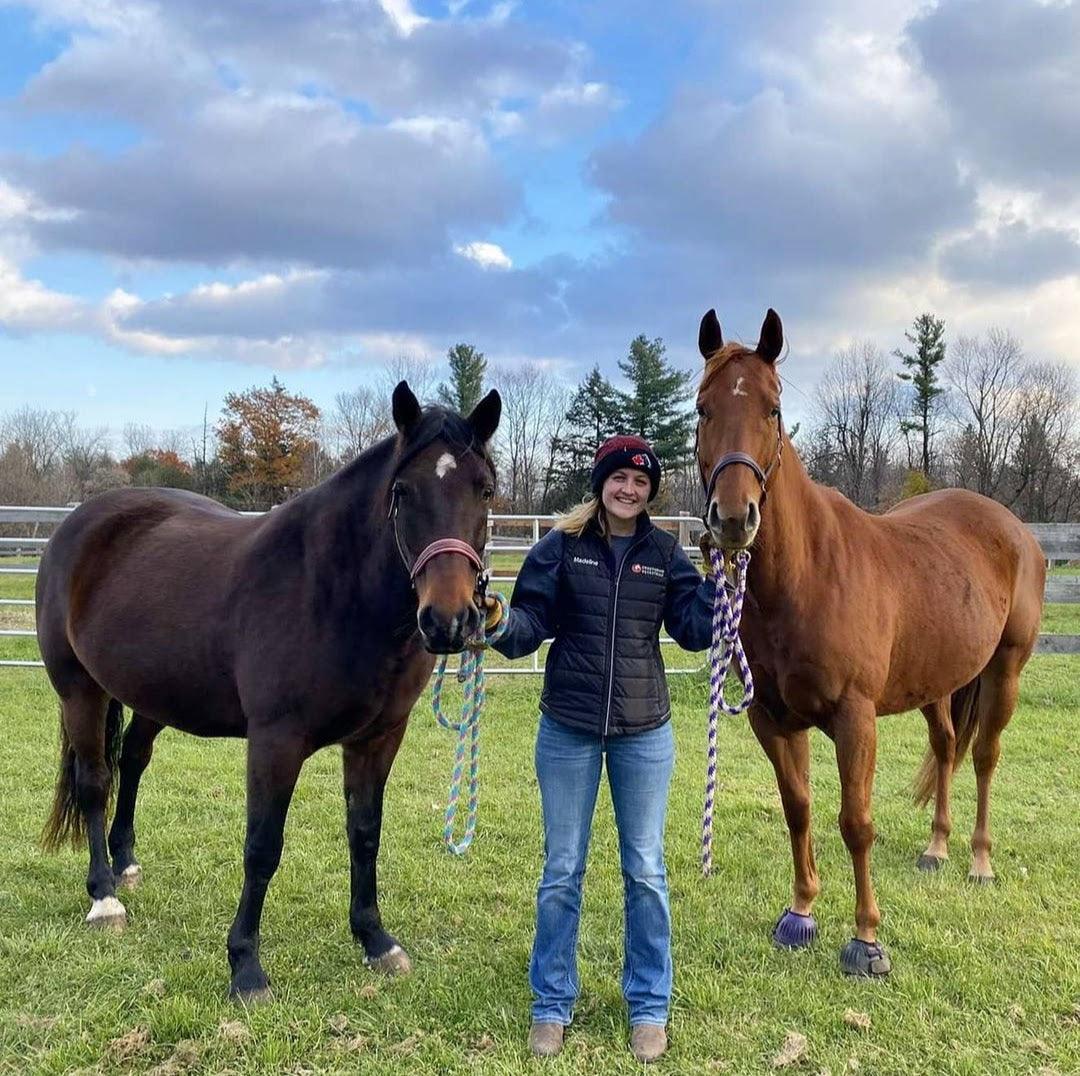
Dietary Zinc & Hoof Health
By: Madeline Boast, MSc. Equine Nutrition
What is Zinc?
Zinc is a trace mineral that is essential in equine diets. Zinc is involved in a variety of processes in the body such as enzymatic activity and metabolism of proteins. However, when horse owners supplement zinc, they generally do this with the goal of improving hoof and coat health. This is because proper supplementation of zinc will assist in supporting keratin synthesis. Since keratin is an abundant protein in the hoof, proper zinc supplementation has been shown to improve hoof strength.
Why is Zinc Important in Equine Diets?
Zinc must be included in equine diets to ensure the proper functioning of the body. The NRC, 2007 outlines that for a 500 kg horse, they require 400-500 mg of zinc daily, depending on their exercise level. Additionally, zinc is a crucial trace mineral for hoof health. Cracked and brittle hooves as well as general poor hoof quality are symptoms of zinc deficiency. Research has shown that when a horse’s zinc and copper requirements are met in a balanced way, there is a lower incidence of hoof wall separation.
The Ratios and Absorption
Unfortunately, ensuring your horse has adequate zinc in their diet is not as straightforward as simply adding a supplement. There are interactions with other minerals that must be considered. This is because zinc, copper and iron all use the same absorption channels. Therefore, when the ratio is skewed (e.g., significant excess iron in the diet) the horse may show deficiency symptoms despite their diet meeting their zinc requirements. Most commercial supplements will provide these minerals in a balanced ratio, however, when balancing, the forage and other commercial products must be combined to ensure the complete ration ratios are balanced.
How to Supplement Correctly
Zinc can be supplemented in either an organic or inorganic form. Research has shown that for parameters such as hoof health, supplementing the horse with organic sources of trace minerals is more effective. The common organic forms of zinc include zinc methionine, zinc proteinate and zinc nicotinate. Therefore, when choosing a supplement for your horse, ensure that the zinc included in the product is an organic form that can be easily absorbed by the horse.
When supplementing zinc in the diet, your nutritionist will evaluate the levels of zinc, copper, and iron to ensure the ratio is correct. It has been shown that when the iron is significantly over-supplied there can be interference with the absorption of both zinc and copper. This can lead to deficiency symptoms and various health issues such as laminitis. When zinc is significantly over-supplied in comparison to copper, there will be issues with copper deficiency in the horse, leading to issues such as skeletal disease. Therefore, when balancing a diet, equine nutritionists will aim for 3:1-4:1 ratio of zinc to copper to ensure these interactions and health issues are avoided.
The NRC outlines an upper-safe limit for zinc supplementation at 500 mg/kg of ration. However, there are issues with excess zinc that research has reported outside of the interactions it has with copper. Recent research has illustrated that excess zinc may negatively impact hindgut health, specifically the microbial population. Therefore, if your horse has hoof strength issues, and you want to try zinc supplementation it is best practice to consult an equine nutritionist.
The key steps to ensuring your horse is being accurately supplemented with zinc to support hoof health are to test your forage, use a product that provides organic forms of the trace minerals and have a nutritionist evaluate the ratios in the diet. If your horse has poor hoof health, consulting a nutritionist can be beneficial to ensure the various ratios are within ideal ranges. Remember, that when altering nutrition with the goal of improving hoof health, the benefits will take multiple months to visually show as that hoof has to grow out. As a general rule, a minimum of 6 months is required prior to visually seeing any results.
If you have any questions, Madeline can be reached at balancedbaynutrition@gmail.com
By: Madeline Boast, MSc. Equine Nutrition

About the author: Madeline Boast completed her master’s in Equine Nutrition at the University of Guelph and started an independent nutrition company known as Balanced Bay. She has worked with a variety of equids – from miniature ponies to competing thoroughbreds. Through Balanced Bay she designs customized balanced nutrition plans that prioritize equine well-being. This includes diets for optimal performance as well as solving complex nutritional issues and everything in between. For additional information see www.balancedbay.ca
References:
Dickson, E. C. (2018). Effect of Complexed Trace Mineral Supplementation on Joint Health in Young, Exercising Horses (Doctoral dissertation).
Higami, A. (1999). Occurrence of white line disease in performance horses fed on low-zinc and low-copper diets. Journal of equine science, 10(1), 1-5.
Mills, C. F. (1985). Dietary interactions involving the trace elements. Annual review of nutrition, 5(1), 173-193.
Murase, H., Sakai, S., Kusano, K., Hobo, S., & Nambo, Y. (2013). Serum zinc levels and their relationship with diseases in racehorses. Journal of Veterinary Medical Science, 75(1), 37-41.
National Research Council. Nutrient Requirements of Horses. (2007). National Academy Press, Washington, D.C.
Paßlack, N., van Bömmel-Wegmann, S., Vahjen, W., & Zentek, J. (2022). Impact of Dietary Zinc Chloride Hydroxide and Zinc Methionine on the Faecal Microbiota of Healthy Adult Horses and Ponies. Journal of Equine Veterinary Science, 110, 103804.
Wagner, E. L., Potter, G. D., Gibbs, P. G., Eller, E. M., Scott, B. D., Vogelsang, M. M., & Walzem, R. L. (2011). Copper and zinc balance in exercising horses fed 2 forms of mineral supplements. Journal of animal science, 89(3), 722-728.
